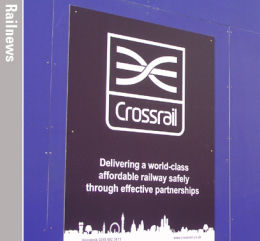Posted 9th July 2021 | No Comments
Crossrail over budget again, report reveals

THE troubled London Crossrail project is pushing at the boundaries of its budget yet again, in spite of repeated attempts to rescue the project while keeping within existing resources.
The Elizabeth Line across London was due to open in December 2018, but delays have pushed back the opening date by years, while the pandemic has caused further problems.
A new report from the National Audit Office has revealed that the revised schedule and budget agreed in April 2019 was unachievable because the programme was further from being complete than Crossrail Ltd and the programme's sponsors understood. The report has been welcomed by Crossrail Ltd and Transport for London.
It adds that 'although cost increases and schedule delays are in line with Crossrail Ltd's 2020 estimates, they exceed the available budget and there are still significant issues that could arise as the railway is brought into service'.
When the NAO last reported in May 2019 the funding package for Crossrail stood at £17.6 billion, the forecast cost was £17 billion, and the central section was due to open by March this year at the latest.
Milestones were repeatedly missed in 2019 and into 2020 due to Crossrail Ltd continually uncovering problems or identifying requirements for new work. Despite contractors meeting only 30 per cent of milestones on average throughout 2019 and early 2020, Crossrail Ltd continued to base its plans on more optimistic levels of productivity.
Covid is estimated to have cost £228 million, and the latest cost estimate of £18.9 billion at May 2021 exceeds the available funding package by £120 million, but it is within the upper limit of Crossrail Ltd's August 2020 cost estimate.
The NAO has warned there are 'still significant issues that could affect cost and schedule'.
NAO head Gareth Davies said: 'Crossrail was further from completion than anyone understood when the Department, TfL and Crossrail Ltd reset the programme in 2019. The problems we identified in our previous report have been difficult to address and have continued to affect the programme.
'There are now encouraging signs that Crossrail is in a more stable position. However, it will require further funding to complete, and there are still significant risks that must be managed as the Elizabeth Line undergoes operational testing. As the line nears the start of services in 2022, TfL and government must think through how to realise the benefits of the railway in order to maximise the return on almost £19 billion of investment.'
